.
Books for Readers # 186
I have several books I am enthusiastic about this issue. I suppose I always have books I'm enthusiastic about, but I don't really expect a lot of people to love big Victorian novels on Kindle they
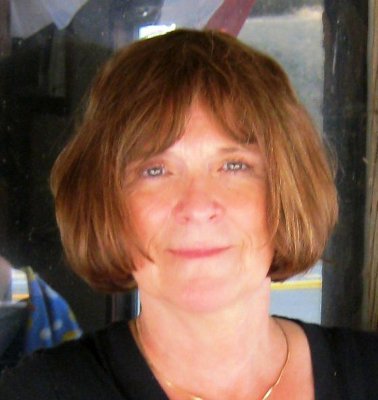
way I do. This month's enthusiasms are for books I think a lot of other people will be enthusiastic about too.
First is The Courtship of Eva Eldrige by Diane Simmons, who came into possession of a trove of some 800 letters some years ago, letters "collected into fat packets and tied with loops of tightly knotted kitchen string"—hidden away in an Eastern Oregon attic. She writes that something at the time held her back from opening them and prying into their secrets, "something that felt a lot like fear." However, the woman who had saved the letters, a woman Simmons had known since childhood, had died, and named Simmons executor of her estate. Why had the woman saved them all these years if not to be found someday and their remarkable story told?
This is our introduction to The Courtship of Eva Eldridge, the story not just of one woman's quest for love, but of an era's confident belief in romantic happiness in marriage. Simmons begins the story in March 1958, in Boise, Idaho, when Eva Eldridge is thirty-five and her dreamboat husband Vick disappears after a year of seemingly blissful marriage. Moving back and forth in time, we follow Eva's evolution from a simple farm girl through her war years as a single working woman in the ship-building boom town of Portland, Oregon, then a failed post-war marriage, to her life as a cigarette girl in a glamorous hotel in Boise where she meets and marries Vick.
Through the lens of Eva's life, Simmons reflects on the rapid changes in the role of women during the second world war and immediately after: from wife and homemaker to wage-earner and back again, women were thrown out of the workforce after World War II to make room for the returning veterans. She shows us the role the media played—first calling women into performing men's civilian work during the war as a service to their country, and then promoting marriage and home as the only suitable job for women after the war.
The first half of the book is a lively interweaving of points of view. Part 2, however opens the theme of what Simmons calls "the marriage-mad fifties" with a bombshell that begins to solve the mystery that has tantalized us so far: where did Eva's beloved Vick go? A year after he disappears, Eva receives a twelve-page letter from a woman named Odette, who met and married Vick after he left Eva. Then he left Odette. Odette has discovered earlier wives, and has started to track them down. He abandoned the wives, we learn with Eva, after short marriages with no explanation. Eva and Odette collaborate in the search through letters and phone calls. Decades later, Simmons herself joins the search, using the Internet and e-mail. She locates and communicates with surviving wives, children, and others who remember Vick. All told, she discovers ten wives.
Of course she asks why, and there's no easy answer to that. Simmons's explanation for Vick's motivation is complex: Vick apparently loved weddings, from the excitement of the courtship through the pageantry of the ceremony to the romance of the honeymoon. Once that was over, he drove off in a shiny new car in search of another bride. Vick's surprise reappearance in Eva's life leads to a satisfying denouement, which I will not give away.
Toward the end of the book, Simmons reflects that Eva "came of age in a world turned upside down, one in which her parents' beliefs seemed only dimly relevant and that—right or wrong—she too had tried to follow her heart." If at times the complexity of the cast of characters and skipping around in time causes the reader's head to spin, Simmons never loses us. We can be glad that Eva's letters and story fell into the hands of a gifted storyteller with a keen eye for social analysis and deep empathy for her subject. You don't often get this much information and thoughtful interpretation in the context of a truly gripping--and true-- story.
Next, I want to share a couple of older books that really caught me up. First was
Monster by the
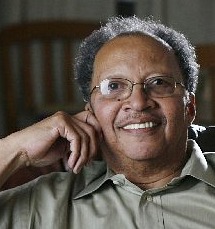
late great Walter Dean Myers. This is YA and came out around 1999. It is quite short, written in the form of diary entries and a screenplay. It's about a teen on trial for a murder that happened during a bodega robbery gone wrong. It is deeply engrossing--all I wanted was to know what happened to Steven, but Myers also handles very well the methods the attorneys use to set up their arguments, how they attempt to influence the jury, etc. There is also a nice ambivalence about the ending--something you don't usually expect of young adult literature. There are serious questions about what is Truth, about what it means to get away with something. Are you really part of a robbery if some neighborhood punks threaten you into saying the coast is clear? Is Not Guilty the same as Innocent? And how is individual morality influenced by heavy-handed state penalties?
Finally, in my short list of favorite books for the summer, is another book by a late great writer-- in this case, the science fiction novelist Octavia Butler. The book was the finale of the Xeogenesis
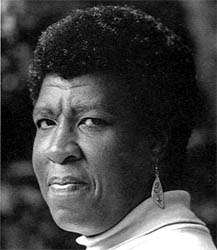
trilogy,
Imago. I like good science fiction, and I hadn't realized how good Butler was on straight science fiction (I had, of course, thoroughly admired her time travel novel,
Kindred). Each book of the trilogy has a different point of view character, always satisfying, and this one had a deeply satisfying ending as well. It focuses on the half alien/half human "construct" people, especially the third sex, the ooloi, who have great healing powers, and also powers of passionate love and seduction. The novels are exciting, with lots of good imagined detail that all hangs together nicely, and there are also the Big Ideas that I like so much in science fiction-- in this case, the sharp limitations of the human species that include a strong tendency to hierarchy and of course, self-destruction.
Butler does brilliantly with cross species love: she has invented a species whose modus operandi is to "trade" genes with other species, make new creatures. I love that. They aren't just sucking out the marrow from human bones, and they aren't just powerful angels come to solve our problems. They have their unpleasant sides too, but are individuated and recombined in their half-human children. So nicely done.
If the book has any fault, it would be maybe the quick closure. Too many science fiction novels, I think shut it down too soon. I don't know why--length considerations? Failure of imagination? Or is it me, not wanting to leave a world that I so appreciate having had created for me?
FIRST TEST BY TAMORA PIERCE REVIEWED BY SARAH CORDINGLEY
If an enormous, human-headed spider devoured two live kittens in front of you, the appropriate response tends to be more along the lines of running for help rather than attack it armed only with small stones.
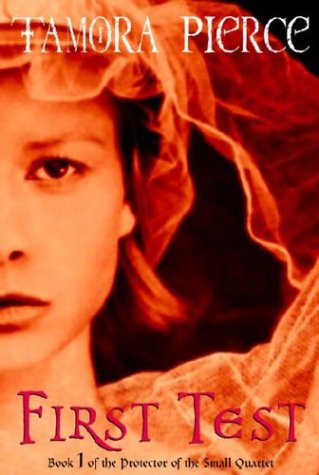
Especially if the lone witness were a ten-year-old girl.
In a realm where it has recently been made legal for girls to train as knights, Keladry of Mindelan has stepped up as the first female page – openly female, that is. Kel's idol, Alanna of Trebond – the Lioness, King's Champion, and the first distaff knight in Tortall in centuries – earned her shield masquerading as a boy. Kel dreams of becoming a knight, and some small, senseless part of her believes doing so will be easier without bearing the secret of her concealed gender on her shoulders.
But while the king and the law approve of her decision, that approval is far removed from the harsh reality Kel has thrust herself into. The pages' training master, Lord Wyldon of Cavall, believes females to be unfit for battle and most of her fellow pages would sooner mock and shun her than befriend her.
Lord Wyldon would rather Kel not be allowed into training, law or no law, but rather than defy his King, he requests a compromise: Kel must be placed under probation for a year, only to be allowed to continue at his discretion.
First Test explores a world in which the battle for equality – among classes and genders alike – has been amplified into the forefront of focus as Kel struggles to gain acceptance among her new peers. While Kel masters combat and etiquette, progressives and conservatives both outside of court and within use Kel and everything she stands for as a scapegoat as well as a weapon. Conservatives in Tortall would prefer women never amount to anything more than a pretty face and will stop at nothing to chase Kel out of the palace, while progressives are in full support of women gaining equal footing with men, though tradition ensures few will state that opinion outright.
A YA novel and the first of an engaging quartet, First Test invites readers to (re)enter Pierce's beloved Tortall through the eyes of a magicless young woman and in a time in which politics and protocol are as much under debate as war and trade.
MORE GOOD BOOKS (Reviewed by MSW unless otherwise stated)
Prime Rift by Veronica Sicoe is the second book in Sicoe's trilogy whose forward momentum kept me reading. This series too has cross species love, but it is more Alien Mr. Darcy than Octavia Butler's deep consideration of sexuality and gender. Whereas Butler's ooloi have power because they love, Sicoe's love affair is much more traditional: he is all-powerful, she is feisty. Sicoe's heroine Taryn has a wise-cracking YA tone. She is always saying something along the lines of "I just HAVE to save him/her/the planet/the species," and then-- with high entertainment value, she goes off and does it. She's very funny and dependable--you don't believe she's really in danger even when she's covered with killer mutants while simultaneously being poisoned from within by a kind of alien virus. It's entertaining, good natured, swashbuckling fun.
Mine Eyes Have Seen by Johnny Sundstrom is also part of a trilogy, and I find myself increasingly fond of his characters as I read on. Sundstrom creates a version of the real Old West with the slow accumulation of quotidian details and events of frontier life. He uses as his loose structure the story of Abraham, Sarah, and Hagar in the Bible. Sundstrom's hero is a former confederate soldier wants to do right and ends up with two women bearing him children, and deep friendships with the native Americans. He is in many ways heroic, and he certainly tries hard and gets confused, but he is always
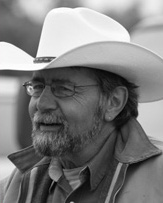
working. I am charmed by the meticulous detailing of the work everyone is doing: getting enough water, bringing the cows in close, cooking, chopping wood: it's how the days are filled.
The development of the story is driven not so much by character as by historical events and natural stages of maturation and change. In an odd way, in spite of a lot of wonderfully written wars with the Indians and threats from evil white men, there is a stolid moving forward through life that I find appealing and certainly realistic. The final third of the novel gathers increasing momentum and jump cuts with cinematic panache between the Hagar character, Helga and her son running and fighting with The Nez Perce Indians who are under attack by the American army and the people back on the ranch. Chief Joseph ("I will fight no more..") appears in person not as a warrior but as a leader and helper of those who are thirsty and in trouble. The battles are described quite brilliantly from the periphery through the eyes of the women and children who, as part of the caravan, are trying to escape both the reservation the Americans want to put them on and the soldiers who fight them. The warriors are courageous, and everyone has a part in the battle, handing off fresh horses, for example, if not fighting.
We are fully fully on the side of the Nez Perce, but there are too many American soldiers, and the weight of a whole traveling tribe, while the motivation and purpose of the warriors, is too unwieldy for the Indians finally to triumph. The Indians send away their three white people for their own safely.
Meanwhile, back at the ranch, with A be and Sarah and their little community, there are a few relatively benign dangers and deaths, but the book ends with us on tenterhooks because of a frightening event that I won't name. Looking forward to the final volume.
I also read
Mating by Norman Rush, which I bought and started maybe ten years ago (is that possible? Unfortunately, probably yes). I stopped, as I remember, because the beginning seemed like sex and love among Europeans in Africa. Ex pat lit, which can be okay, but I wasn't in the mood at that moment.
This time I finished it, with respect but not a lot of enthusiasm. It is carefully worked, in the end, a quirky love story. The parts I liked best were the description of a settlement in Botswana where women run their own village under the eminence grise of their American founder Nelson Denoon. The women of their various tribes and their efforts at democracy and a workable economic system include both exotic (to me) folkways and interesting cultural details and marvelously universal wants, needs, and humanity-- all that part, and the flora and fauna of the great desert where they have their village are excellent: lions and boomslang snakes!.
But the heart of the story is the narrator, who I never really liked much. I also didn't feel quite convinced that she was really a woman-- hard to explain, because Rush has clearly tried hard to imagine her. But in the end, she's a woman who falls for a heroic figure of a man and devotes her life to him. There is some humor about this, and a lot of the novel consists of their stimulating and intellectually wide ranging conversations, but it's all too much for me in the end. I didn't have patience for Denoon that the narrator and Norman Rush had.
And finally, a happy surprise borrowed as an e-book from the library,
Lionel Asbo: The State of England by Martin
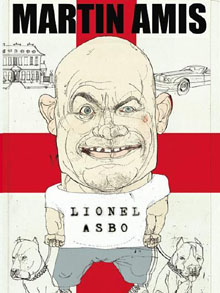
Amis. I probably wouldn't have read this if not for the biographical background on Elizabeth Howard I discovered for my
review of one of Howard's books in Issue 1845. Howard was Amis's step mother, and apparently one of the reasons he found himself as a writer.
This book has lots of witty and lovely visual writing, in spite of its dystopian setting. The second third of the book is probably weaker than than first third and final third. I have a complaint about how grossly manipulative the theme of the dangerous pit bulls is: Will they kill the baby? Would Amis dare?) I almost wished they had done it, just to justify the brouhaha.
I have some quibbles: I got very tired of how the narrator notes again and again that Lionel's dialect pronounces "th" as "f," for example. And why on earth do the more-or-less normal couple Des and Dawn stay in the neighborhood in their 33rd floor walk-up apartment? I'm sure the answer is that it's fantasy, of course, and most of it works just fine. It's fun to read, lots of funny stuff and it managed a better ending than a lot of books.
And unlike the Norman Rush, this one inspired me to think I may read some more of his books.
READING APPALACHIA from BOOK LEAF
I also recently saw a book review of it in the Wall Street Journal. Interesting how in the Journal, they only said that the author blames Appalachian culture for the hardships of his grandparents and parents — and the only aspect of that culture that they mention is being violent, as if all Appalachian people are violent, as if that's an integral part of their culture (in actuality, read: character). Anyone reading that Journal article who's ignorant about Appalachia could dismiss poverty in Appalachia as being the fault of those who live there.
But the above article in The Atlantic reports on the more complex picture that the author draws....I can't remember if the author has actually lived in Appalachia at any part of his life. His mother and grandparents who mostly raised him are from Appalachia, so that's what he's relying on to make him the expert. But he basically grew up in southwestern Ohio where his grandfather had migrated for a factory job.
READERS RESPOND
Belinda Anderson responded to the interview with
Monique Raphel High in Issue #185: "'Most writers I know, me included, tend to hold a lot back.' That really struck me as quite true. Enjoyed the entire interview. Also loved your description in a review of allowing a book to swirl around one."
NOTES ON NARRATIVE VERSUS DRAMA
While we were on vacation, we saw two short plays at the
Pythagoras Theatre Works in West Stockbridge, Mass, "The Promise" and "Roman Fever" with Corrinne May and David Joseph and Diane Prusky-- in the historic old town hall. The two plays are intimate chamber dramas based on Edith Wharton's short stories, with the excellent actors we know from Shakespeare & Company and other Berkshire theaters. The themes were familiar from Wharton and Henry James-- cultured poor gentlefolk using their social skills to
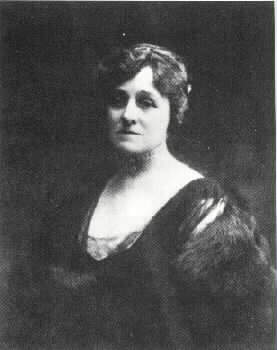
make a living by marrying needy aristocrats to wealthy Americans (think
Portrait of a Lady), the threat of young women dying of fever after nights out at the Colosseum in Rome (like
Daisy Miller). The second play was, as I noted, actually called "Roman Fever."
I decided to read the short story version of "Roman Fever" in
a .pdf online . The point of doing this was curiosity. The productions themselves were were excellent, the play writing fine, though a little static (and what I love best in the theater is always stages full of people running hither and yon).
What I was interested in what had been changed from the narrative form to the dramatic. The immediate difference is easy: maybe eighty per cent or more of the dialogue in the plays had been internal monologue or narrative in the story. Obviously the plays had to dramatize or there would have been no drama.
What was more striking to me though, was that the theater pieces felt more modern. The conflicts, dramatized, were overt: Alida is told by Grace that she's the kind of person who always says what she thinks, whereas in the story, we are told that Grace thinks it. The dialogue in the story, when it happens, is also more shocking, and, of course, by having so much said, we lose the special cultural reticence of the time and these women's class: the ladylike silence on so many matters that was idealized in the first quarter of the twentieth century.
The dramatized versions, then, were easier to identify with because of this modern openness of speech. The story was more subtle, and more revealing of a different world, in the short story.
READ AND LISTEN ONLINE
A Conversation About Keeping Drafts was updated 8-9-16 in The Practical Writer -- Suzanne McConnell, NancyKay Shapiro, Diane Simmons, and Meredith Sue Willis.
Laura Tillman, author of THE LONG SHADOW OF SMALL GHOSTS (reviewed in Issue 184 ) has a piece about the ethics of a journalist corresponding with a murderer.
Interesting short story recommended by George Lies: "Lingerlonger"
ANNOUNCEMENTS, GOOD NEWS, CONTESTS, WORKSHOPS, READINGS AND MORE.
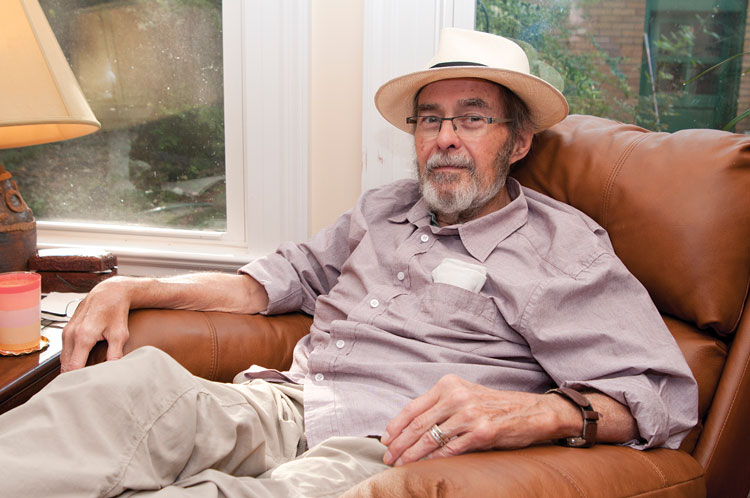
Barbara Crooker's new book new book, Les Fauves, will be published by C&R Press in 2017.
George Lies has lots of good publishing and award news: On June 10, 2016 his short story "Stand Still" finished 4th of 86 entries in the short story of WV Writers State writing competition judges by Pinckney Benedict. Also see his "Rafaello's Night" in the Heart Wood Literary Journal of April 1.

Jim Minick's novel, Fire Is Your Water, is due out from Ohio University Press early in 2017. It's already garnered kind cover quotes from Lee Smith and Fred Chappell. "Birth," a short nonfiction piece, just came out in Still. This fall Poets & Writers will publish an article on his experience of teaching in one MFA program while studying in another. Also this fall (Oct 27 and 28), the Iron Mountain Lit Fest at Emory & Henry College will celebrate Minick's work—a huge honor.
Congratulations Jim!
There was terrible flooding earlier this summer in southeastern West Virginia. If you or another artist you know needs assistance due to the flooding in WV, please contact Les Snow at CERF. CERF+ would like to make sure that any professional artist working in a craft discipline seriously affected by the flooding is aware of the emergency relief assistance available from CERF+. Direct Assistance to Artists Working in Craft Disciplines CERF+'s programs include: · Grants up to $6,000; · No-interest loans up to $9,000; · Booth fee waivers at craft shows; and much more.
COMING SOON FROM IRENE WEINBERGER BOOKS:
.
Also from IRENE WEINBERGER BOOKS:
A NOTE ABOUT AMAZON.COM
I have a lot of friends and colleagues who really despise Amazon. See the recent discussion inIssue # 184, as well as older comments from Jonathan Greene and others here.
The largest unionized bookstore in America has a webstore at Powells Books. Some people prefer shopping online there to shopping at Amazon.com. An alternative way to reach Powell's site and support the union is via http://www.powellsunion.com. Prices are the same but 10% of your purchase will go to support the union benefit fund.
WHERE TO FIND BOOKS MENTIONED IN THIS NEWSLETTER
If a book discussed in this newsletter has no source mentioned, don’t forget that you may be able to borrow it from your public library as either a hard copy or a digital copy. You may also buy or order from your local independent bookstore. (To find a bricks-and-mortar store, click the "shop indie" logo left).
To buy books online, I often use Bookfinder or Alibris. Bookfinder gives the price with shipping and handling, so you can compare what you’re really going to have to pay.
Another source for used and out-of-print books is All Book Stores. Also consider Paperback Book Swap, a postage-only way to trade books with other readers.
Still another place to buy books: Ingrid Hughes suggests "a great place for used books which sometimes turn out to be never-opened hard cover books is Biblio.. I've bought many books from them, often for $4 including shipping."
If you are using an electronic reader like Kindle, Nook, or Kobo, don't forget free books at theGutenberg Project—mostly classics, and free, free, free!
Kobobooks.com sells e-books for independent brick-and-mortar bookstores.
RESPONSES TO THIS NEWSLETTER
Please send responses to this newsletter and suggestions directly to Meredith Sue Willis . Unless you instruct otherwise, your responses may be edited for length and published in this newsletter.
BACK ISSUES click here.
LICENSE
way I do. This month's enthusiasms are for books I think a lot of other people will be enthusiastic about too.
First is The Courtship of Eva Eldrige by Diane Simmons, who came into possession of a trove of some 800 letters some years ago, letters "collected into fat packets and tied with loops of tightly knotted kitchen string"—hidden away in an Eastern Oregon attic. She writes that something at the time held her back from opening them and prying into their secrets, "something that felt a lot like fear." However, the woman who had saved the letters, a woman Simmons had known since childhood, had died, and named Simmons executor of her estate. Why had the woman saved them all these years if not to be found someday and their remarkable story told?This is our introduction to The Courtship of Eva Eldridge, the story not just of one woman's quest for love, but of an era's confident belief in romantic happiness in marriage. Simmons begins the story in March 1958, in Boise, Idaho, when Eva Eldridge is thirty-five and her dreamboat husband Vick disappears after a year of seemingly blissful marriage. Moving back and forth in time, we follow Eva's evolution from a simple farm girl through her war years as a single working woman in the ship-building boom town of Portland, Oregon, then a failed post-war marriage, to her life as a cigarette girl in a glamorous hotel in Boise where she meets and marries Vick.Through the lens of Eva's life, Simmons reflects on the rapid changes in the role of women during the second world war and immediately after: from wife and homemaker to wage-earner and back again, women were thrown out of the workforce after World War II to make room for the returning veterans. She shows us the role the media played—first calling women into performing men's civilian work during the war as a service to their country, and then promoting marriage and home as the only suitable job for women after the war.The first half of the book is a lively interweaving of points of view. Part 2, however opens the theme of what Simmons calls "the marriage-mad fifties" with a bombshell that begins to solve the mystery that has tantalized us so far: where did Eva's beloved Vick go? A year after he disappears, Eva receives a twelve-page letter from a woman named Odette, who met and married Vick after he left Eva. Then he left Odette. Odette has discovered earlier wives, and has started to track them down. He abandoned the wives, we learn with Eva, after short marriages with no explanation. Eva and Odette collaborate in the search through letters and phone calls. Decades later, Simmons herself joins the search, using the Internet and e-mail. She locates and communicates with surviving wives, children, and others who remember Vick. All told, she discovers ten wives.Of course she asks why, and there's no easy answer to that. Simmons's explanation for Vick's motivation is complex: Vick apparently loved weddings, from the excitement of the courtship through the pageantry of the ceremony to the romance of the honeymoon. Once that was over, he drove off in a shiny new car in search of another bride. Vick's surprise reappearance in Eva's life leads to a satisfying denouement, which I will not give away.Toward the end of the book, Simmons reflects that Eva "came of age in a world turned upside down, one in which her parents' beliefs seemed only dimly relevant and that—right or wrong—she too had tried to follow her heart." If at times the complexity of the cast of characters and skipping around in time causes the reader's head to spin, Simmons never loses us. We can be glad that Eva's letters and story fell into the hands of a gifted storyteller with a keen eye for social analysis and deep empathy for her subject. You don't often get this much information and thoughtful interpretation in the context of a truly gripping--and true-- story.Next, I want to share a couple of older books that really caught me up. First was Monster by thelate great Walter Dean Myers. This is YA and came out around 1999. It is quite short, written in the form of diary entries and a screenplay. It's about a teen on trial for a murder that happened during a bodega robbery gone wrong. It is deeply engrossing--all I wanted was to know what happened to Steven, but Myers also handles very well the methods the attorneys use to set up their arguments, how they attempt to influence the jury, etc. There is also a nice ambivalence about the ending--something you don't usually expect of young adult literature. There are serious questions about what is Truth, about what it means to get away with something. Are you really part of a robbery if some neighborhood punks threaten you into saying the coast is clear? Is Not Guilty the same as Innocent? And how is individual morality influenced by heavy-handed state penalties?
Finally, in my short list of favorite books for the summer, is another book by a late great writer-- in this case, the science fiction novelist Octavia Butler. The book was the finale of the Xeogenesistrilogy, Imago. I like good science fiction, and I hadn't realized how good Butler was on straight science fiction (I had, of course, thoroughly admired her time travel novel, Kindred). Each book of the trilogy has a different point of view character, always satisfying, and this one had a deeply satisfying ending as well. It focuses on the half alien/half human "construct" people, especially the third sex, the ooloi, who have great healing powers, and also powers of passionate love and seduction. The novels are exciting, with lots of good imagined detail that all hangs together nicely, and there are also the Big Ideas that I like so much in science fiction-- in this case, the sharp limitations of the human species that include a strong tendency to hierarchy and of course, self-destruction.
Butler does brilliantly with cross species love: she has invented a species whose modus operandi is to "trade" genes with other species, make new creatures. I love that. They aren't just sucking out the marrow from human bones, and they aren't just powerful angels come to solve our problems. They have their unpleasant sides too, but are individuated and recombined in their half-human children. So nicely done.If the book has any fault, it would be maybe the quick closure. Too many science fiction novels, I think shut it down too soon. I don't know why--length considerations? Failure of imagination? Or is it me, not wanting to leave a world that I so appreciate having had created for me?Especially if the lone witness were a ten-year-old girl.
In a realm where it has recently been made legal for girls to train as knights, Keladry of Mindelan has stepped up as the first female page – openly female, that is. Kel's idol, Alanna of Trebond – the Lioness, King's Champion, and the first distaff knight in Tortall in centuries – earned her shield masquerading as a boy. Kel dreams of becoming a knight, and some small, senseless part of her believes doing so will be easier without bearing the secret of her concealed gender on her shoulders.But while the king and the law approve of her decision, that approval is far removed from the harsh reality Kel has thrust herself into. The pages' training master, Lord Wyldon of Cavall, believes females to be unfit for battle and most of her fellow pages would sooner mock and shun her than befriend her.Lord Wyldon would rather Kel not be allowed into training, law or no law, but rather than defy his King, he requests a compromise: Kel must be placed under probation for a year, only to be allowed to continue at his discretion.First Test explores a world in which the battle for equality – among classes and genders alike – has been amplified into the forefront of focus as Kel struggles to gain acceptance among her new peers. While Kel masters combat and etiquette, progressives and conservatives both outside of court and within use Kel and everything she stands for as a scapegoat as well as a weapon. Conservatives in Tortall would prefer women never amount to anything more than a pretty face and will stop at nothing to chase Kel out of the palace, while progressives are in full support of women gaining equal footing with men, though tradition ensures few will state that opinion outright.A YA novel and the first of an engaging quartet, First Test invites readers to (re)enter Pierce's beloved Tortall through the eyes of a magicless young woman and in a time in which politics and protocol are as much under debate as war and trade.working. I am charmed by the meticulous detailing of the work everyone is doing: getting enough water, bringing the cows in close, cooking, chopping wood: it's how the days are filled.
The development of the story is driven not so much by character as by historical events and natural stages of maturation and change. In an odd way, in spite of a lot of wonderfully written wars with the Indians and threats from evil white men, there is a stolid moving forward through life that I find appealing and certainly realistic. The final third of the novel gathers increasing momentum and jump cuts with cinematic panache between the Hagar character, Helga and her son running and fighting with The Nez Perce Indians who are under attack by the American army and the people back on the ranch. Chief Joseph ("I will fight no more..") appears in person not as a warrior but as a leader and helper of those who are thirsty and in trouble. The battles are described quite brilliantly from the periphery through the eyes of the women and children who, as part of the caravan, are trying to escape both the reservation the Americans want to put them on and the soldiers who fight them. The warriors are courageous, and everyone has a part in the battle, handing off fresh horses, for example, if not fighting.We are fully fully on the side of the Nez Perce, but there are too many American soldiers, and the weight of a whole traveling tribe, while the motivation and purpose of the warriors, is too unwieldy for the Indians finally to triumph. The Indians send away their three white people for their own safely.Meanwhile, back at the ranch, with A be and Sarah and their little community, there are a few relatively benign dangers and deaths, but the book ends with us on tenterhooks because of a frightening event that I won't name. Looking forward to the final volume.I also read Mating by Norman Rush, which I bought and started maybe ten years ago (is that possible? Unfortunately, probably yes). I stopped, as I remember, because the beginning seemed like sex and love among Europeans in Africa. Ex pat lit, which can be okay, but I wasn't in the mood at that moment.This time I finished it, with respect but not a lot of enthusiasm. It is carefully worked, in the end, a quirky love story. The parts I liked best were the description of a settlement in Botswana where women run their own village under the eminence grise of their American founder Nelson Denoon. The women of their various tribes and their efforts at democracy and a workable economic system include both exotic (to me) folkways and interesting cultural details and marvelously universal wants, needs, and humanity-- all that part, and the flora and fauna of the great desert where they have their village are excellent: lions and boomslang snakes!.But the heart of the story is the narrator, who I never really liked much. I also didn't feel quite convinced that she was really a woman-- hard to explain, because Rush has clearly tried hard to imagine her. But in the end, she's a woman who falls for a heroic figure of a man and devotes her life to him. There is some humor about this, and a lot of the novel consists of their stimulating and intellectually wide ranging conversations, but it's all too much for me in the end. I didn't have patience for Denoon that the narrator and Norman Rush had.And finally, a happy surprise borrowed as an e-book from the library, Lionel Asbo: The State of England by MartinAmis. I probably wouldn't have read this if not for the biographical background on Elizabeth Howard I discovered for my review of one of Howard's books in Issue 1845. Howard was Amis's step mother, and apparently one of the reasons he found himself as a writer.
This book has lots of witty and lovely visual writing, in spite of its dystopian setting. The second third of the book is probably weaker than than first third and final third. I have a complaint about how grossly manipulative the theme of the dangerous pit bulls is: Will they kill the baby? Would Amis dare?) I almost wished they had done it, just to justify the brouhaha.I have some quibbles: I got very tired of how the narrator notes again and again that Lionel's dialect pronounces "th" as "f," for example. And why on earth do the more-or-less normal couple Des and Dawn stay in the neighborhood in their 33rd floor walk-up apartment? I'm sure the answer is that it's fantasy, of course, and most of it works just fine. It's fun to read, lots of funny stuff and it managed a better ending than a lot of books.And unlike the Norman Rush, this one inspired me to think I may read some more of his books.make a living by marrying needy aristocrats to wealthy Americans (think Portrait of a Lady), the threat of young women dying of fever after nights out at the Colosseum in Rome (like Daisy Miller). The second play was, as I noted, actually called "Roman Fever."
I decided to read the short story version of "Roman Fever" in a .pdf online . The point of doing this was curiosity. The productions themselves were were excellent, the play writing fine, though a little static (and what I love best in the theater is always stages full of people running hither and yon).What I was interested in what had been changed from the narrative form to the dramatic. The immediate difference is easy: maybe eighty per cent or more of the dialogue in the plays had been internal monologue or narrative in the story. Obviously the plays had to dramatize or there would have been no drama.What was more striking to me though, was that the theater pieces felt more modern. The conflicts, dramatized, were overt: Alida is told by Grace that she's the kind of person who always says what she thinks, whereas in the story, we are told that Grace thinks it. The dialogue in the story, when it happens, is also more shocking, and, of course, by having so much said, we lose the special cultural reticence of the time and these women's class: the ladylike silence on so many matters that was idealized in the first quarter of the twentieth century.The dramatized versions, then, were easier to identify with because of this modern openness of speech. The story was more subtle, and more revealing of a different world, in the short story.Books for Readers Newsletter by Meredith Sue Willis is licensed under a Creative Commons Attribution-NoDerivs 3.0 Unported License. Permissions beyond the scope of this license may be available at http://www.meredithsuewillis.com. Some individual contributors may have other licenses.



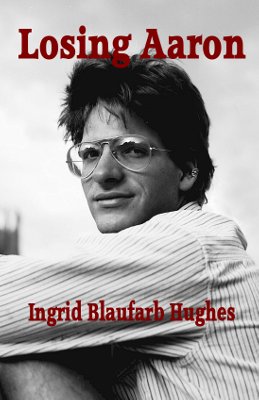
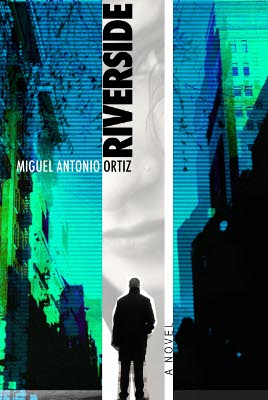
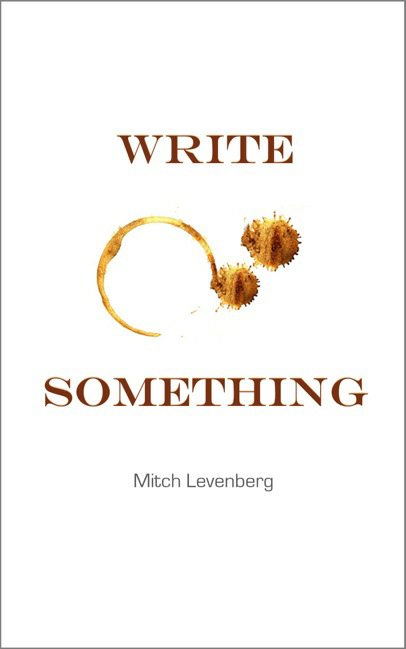
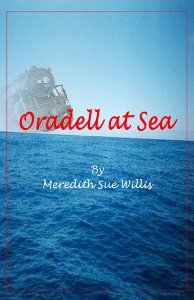
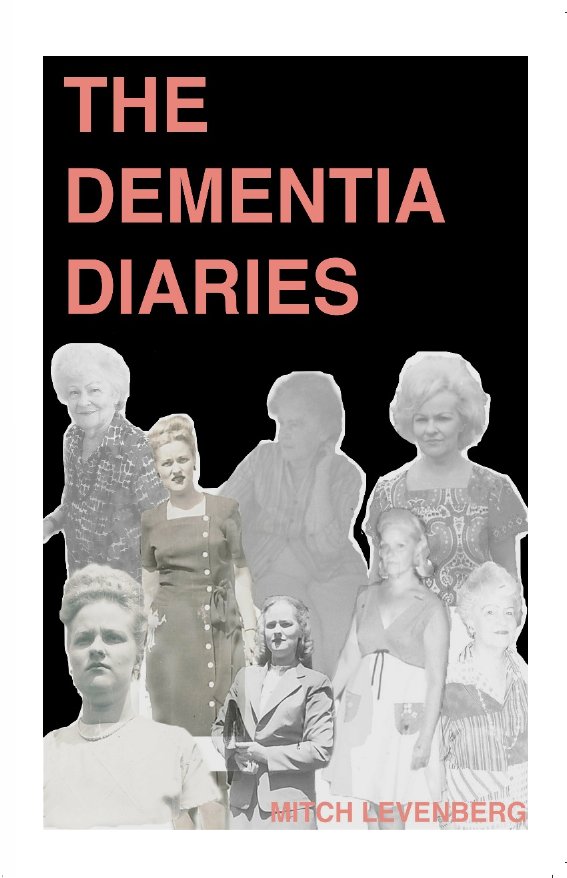

1 comment:
Great reading yourr blog
Post a Comment